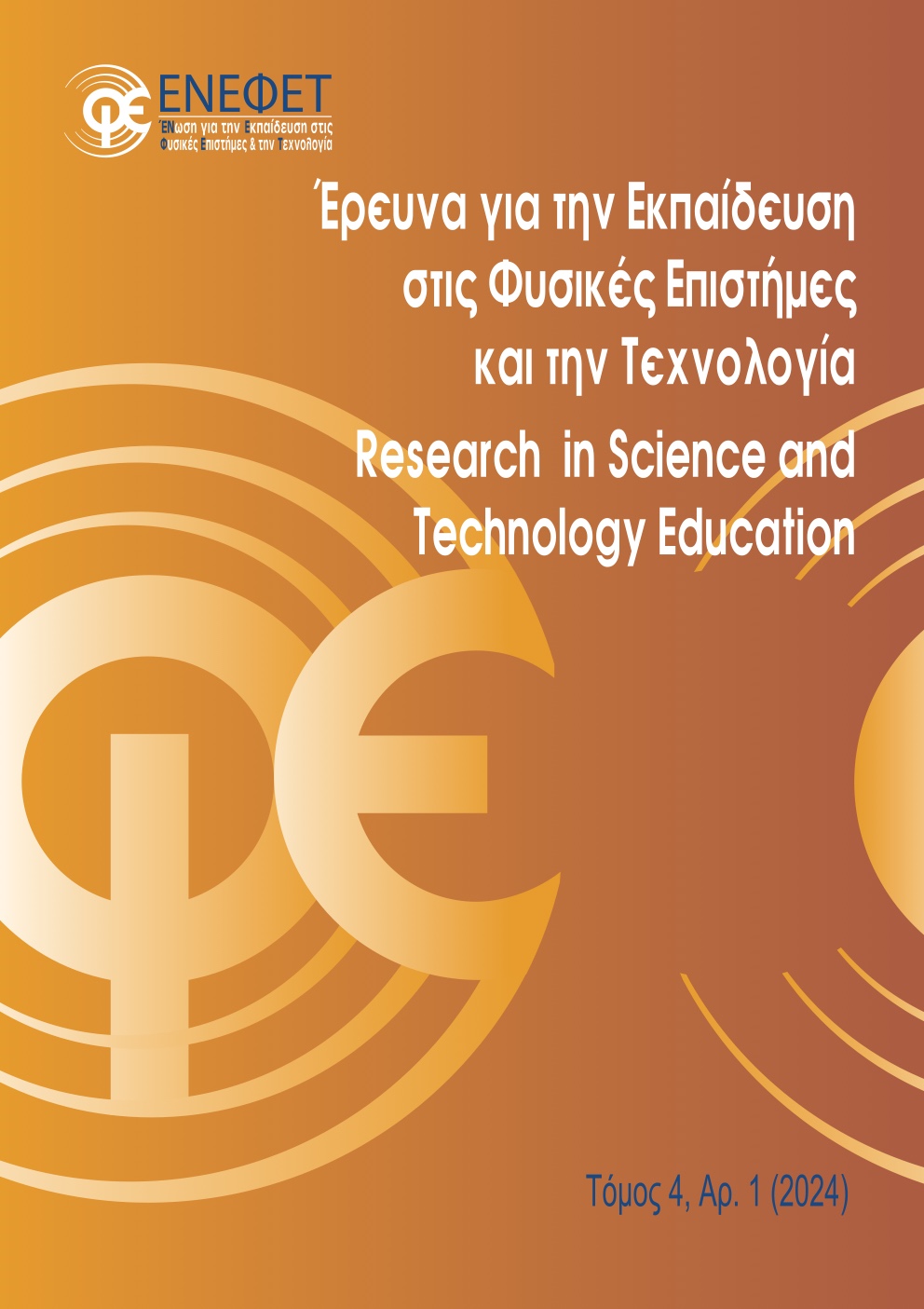Μεταρρύθμιση του Αναλυτικού Προγράμματος Φυσικών Επιστημών από τη σκοπιά των Εκπαιδευτικών

Περίληψη
Είναι πλέον ευρέως αποδεκτό πως η σύγκλιση ανάμεσα στο περιεχόμενο μιας εκπαιδευτικής μεταρρύθμισης και τις απόψεις των εκπαιδευτικών, αποτελεί παράγοντα που μπορεί να συμβάλει στην επιτυχία της. Αυτό συνεπάγεται πως η κατανόηση του τρόπου με τον οποίο οι εκπαιδευτικοί αντιλαμβάνονται το αναλυτικό πρόγραμμα και τις σχετικές με αυτό μεταρρυθμίσεις, αποτελεί καθοριστικό στοιχείο για κάθε προσπάθεια βελτίωσης της εκπαίδευσης. Σε αυτή την εργασία, διερευνούμε τις απόψεις των εκπαιδευτικών φυσικών επιστημών δευτεροβάθμιας εκπαίδευσης σε σχέση με τα βασικά χαρακτηριστικά που οφείλει να έχει μια μεταρρύθμιση του αναλυτικού προγράμματος αλλά και τους παράγοντες που διαμορφώνουν την άποψή τους σε σχέση με μια τέτοια μεταρρύθμιση. Το δείγμα αποτέλεσαν 152 εκπαιδευτικοί, οι οποίοι απάντησαν σε ερωτηματολόγιο που συντάξαμε για τις ανάγκες της παρούσας έρευνας.
Λεπτομέρειες άρθρου
- Πώς να δημιουργήσετε Αναφορές
-
Παπαδάκης Π., & Σταύρου Δ. (2024). Μεταρρύθμιση του Αναλυτικού Προγράμματος Φυσικών Επιστημών από τη σκοπιά των Εκπαιδευτικών. Έρευνα για την Εκπαίδευση στις Φυσικές Επιστήμες και την Τεχνολογία, 4(1), 1–28. https://doi.org/10.12681/riste.36904
- Ενότητα
- Άρθρο Ερευνητικό
Οι συγγραφείς διατηρούν τα πνευματικά δικαιώματα και παρέχουν στο περιοδικό το δικαίωμα της πρώτης δημοσίευσης μαζί με την αδειοδότηση της εργασίας με CC-BY-NC-SA, που επιτρέπει σε άλλους να μοιράζονται αυτή την εργασία με αναγνώριση του συγγραφικού δικαιώματος και την αρχική δημοσίευση σε αυτό το περιοδικό.


